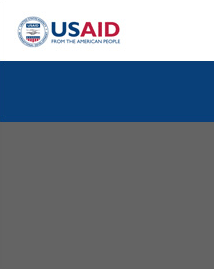Home » USAID Maldives
![]() (356k) USAID Country Profile
(356k) USAID Country Profile
Country Profile
Maldives, an archipelago consisting of over 1,000 coral islands grouped in 26 atolls, is one of the most vulnerable countries in the world to global climate change with its highest point only 8 feet above sea level. After 30 years of authoritarian rule, Maldives held its first demo-cratic election and enacted its first constitution in 2008, though its democratic transition remains fragile. Located along major shipping routes in the Indian Ocean, a peaceful and re-silient Maldives is critical to maritime security and regional stability.
USAID programs in Maldives seek to strengthen civil society and the electoral process to consolidate the country’s demo-cratic transition, as well as address the vulnerability of Maldivians and their livelihoods to climate-related impacts such as rising sea levels and drought.
OUR WORK
Home to about 330,000 people living on 190 islands, Maldives was among the world’s poorest countries just three decades ago. However, in 2011, the country earned middle-income status — mostly fueled by rich marine life and biodiversity along with a booming tourism industry. The island nation has also achieved notable improvements in health and education, with life expectancy of 77 years — compared to 79 in the United States — and a 97 percent literacy rate. Maldives has become a role model for other Muslim nations that are transitioning to democracies.
Despite recent advances, Maldives still faces undeniable challenges to its future progress due to significant threats posed by climate change and the uncertain, democratic transition. High population density and dependence on climate-sensitive in-dustries such as fisheries and tourism exacerbate the country’s vulnerability.
To strengthen democratic governance, USAID programs help civil society organizations monitor political competition and promote free and fair elections. And to mitigate the impacts of global climate change, USAID is improving water security and increasing Maldivians’ capacity to adapt to a changing environment.
• Thanks to USAID interventions, a growing number of residents on two of the most populous islands have an increased sense of responsibility to protect the environment.
• Residents on USAID-assisted islands have begun to implement better solid waste management practices, such as composting, to reduce pollution of their scarce water resources.
• USAID support led to the creation of the first election media monitoring unit during the 2011 atoll and island council election. Photo Credit: USAID/Sri Lanka
USAID/Maldives Country Profile 1
DEMOCRACY, HUMAN RIGHTS AND GOVERNANCE
In February 2012, the first democratically elected president resigned and transferred power to the vice president. Since this transfer of power, Maldives has experienced incidents of political violence and unrest among its population. Today, it remains a young democracy in transition with the 2013-2014 presidential, local government and parliamentary elections providing critical steps forward in advancing Maldives’ democratic transition.
In partnership with the independent commissions and civil society organizations, USAID provides training and other assis-tance to the Election Commission, the Anti-Corruption Commission, the Human Rights Commission and civil society or-ganizations to strengthen the integrity of the electoral process. These efforts include supporting the domestic observation of the elections to promote free and fair elections and supporting regional dialogues to promote reconciliation. In addition, USAID helps community-based organizations encourage citizen participation with atoll and island councils and supports community-based civic education programs.
ENVIRONMENT AND GLOBAL CLIMATE CHANGE
Atoll ecosystems, coral reefs that surround bodies of water, are considered the lifeline of the country. Not only do they form a basis for Maldives’ existence but they also provide shoreline protection and resources upon which the entire econ-omy depends. The biodiversity of atoll ecosystems underpins at least 71 percent of national employment, 89 percent of gross domestic product and 98 percent of exports. However, these ecosystems are under increasing threat from human and climate change impacts. A crucial priority identified by the Government of the Republic of Maldives for climate change adaptation is maintaining and improving the health of their coral reef ecosystems in order to safeguard their access to nat-ural resources, protect their coasts from erosion, and sustain their economy and communities.
USAID climate change programs in Maldives aim to increase the adaptive capacity and environmental security of the Mal-divian people. In collaboration with the Government of the Republic of Maldives, USAID’s climate change adaptation pro-gram is implementing a project aimed at enhancing climate resiliency and water security on the two largest and most popu-lous islands outside of the capital, Male. Efforts include providing a new potable water system to all 5,000 residents on one of the islands. USAID is also assisting the government in strengthening the management of coastal resources — particularly coral reefs — by improving and integrating their information systems on coral reef ecosystem health and reef fish stocks. Through training programs and outreach interventions under both initiatives, USAID facilitates the participation of local communities, private sector, and atoll and island councils in resource management planning.
Issuing Country
Date
Monday, October 28, 2013 - 2:15am








Comment
Make a general inquiry or suggest an improvement.